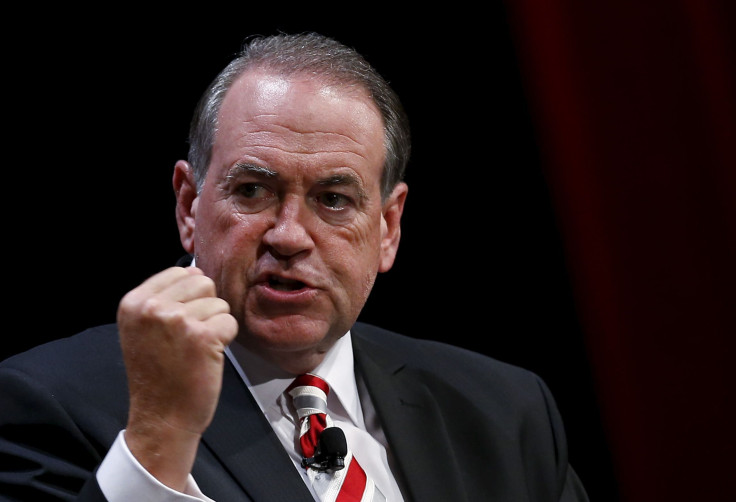Unlike Other 2016 Republican Contenders, Mike Huckabee Visits AFL-CIO

As top brass from the nation’s largest labor federation meets with presidential contenders this week, one of their guests sticks out: He firmly opposes abortion rights, believes the Supreme Court’s ruling on same-sex marriage merits civil disobedience and thinks the deal over Iran’s nuclear program will send Israelis to the “door of the oven.”
Joining the major Democratic candidates courting labor approval, including Hillary Clinton and Bernie Sanders, Mike Huckabee will be the lone Republican to sit down with the AFL-CIO’s executive council during key endorsement meetings on Wednesday and Thursday. Rubbing shoulders with labor leaders may seem an odd way for a religious conservative seeking the GOP nomination to spend a day on the campaign trail, but there’s an easy explanation.
Huckabee, as Politico has previously reported, was the only Republican contender to answer the AFL-CIO’s 2016 candidate survey. The former Arkansas governor’s chances of picking up the federation’s endorsement are virtually nonexistent, and a spokesperson for Huckabee did not respond to requests for comment. But the former Fox News host does distinguish himself from fellow Republicans on at least one issue of major significance to American labor -- opposition to any cuts to Social Security and Medicare.
“Unlike some in Washington who want to cut benefits for seniors, I will protect Social Security and Medicare. Period,” Huckabee said at a June candidate forum organized by Florida Gov. Rick Scott. “These programs are not entitlements; they are earned benefits. The government took that money from you involuntarily when you started working -- with the promise that you’d get that money back when you retire. For the government to even think about breaking that promise is absolutely ridiculous.”
The GOP’s pick for vice president in 2012, Rep. Paul Ryan, rose to prominence in Washington in large part because of his annual budget proposals that included steep cuts to social insurance programs. The plans have called for increases in the Social Security retirement age and cuts in benefits through lower cost-of-living increases. Republican officials and party insiders cheered those proposals in the past and many now applaud similar plans from New Jersey Gov. Chris Christie, another 2016 candidate.
Unions sometimes contribute to GOP candidates in state races and in their bids for congressional seats. But the AFL-CIO has never endorsed a Republican for president. It also explicitly identifies with progressive policy goals. More than anything, that accounts for the candidates’ lack of interest, suspects James Sherk, labor policy expert at the conservative Heritage Foundation.
“The AFL-CIO sees and describes itself as part of the progressive movement,” says Sherk. “The GOP candidates probably see little value in asking for an endorsement the AFL-CIO would not seriously consider giving them.”
© Copyright IBTimes 2024. All rights reserved.












